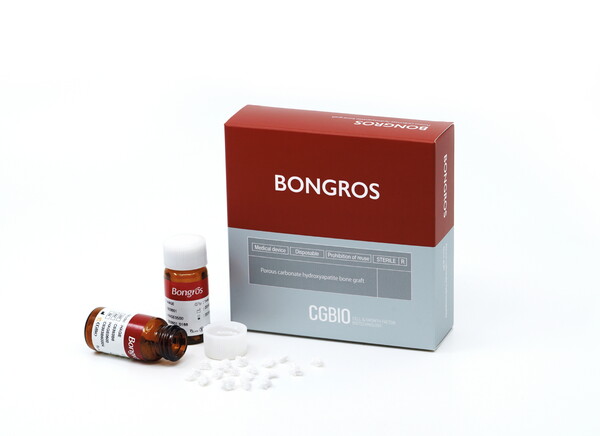CG Bio, a Korean developer of regenerative medicine, said Monday that it plans to expand its market for bone graft materials in China by capitalizing on the rising demand for synthetic bone substitutes.
This shift comes as concerns grow over the safety of human tissue supplies following a scandal involving stolen bodies in China used for bone grafts.

Reports from China revealed that a criminal network stole over 4,000 corpses from crematoriums, extracted bones for dental grafts, and sold them as allogeneic bone transplants to one of the country’s largest biomaterial firms.
The trafficking of these corpses has raised serious health concerns, as allogeneic bone grafts sourced from unidentified or inadequately tested cadavers can transmit diseases such as HIV, hepatitis B and C, and bacterial infections.
“This incident has led to increased government oversight, and many allogeneic bone producers are now facing challenges in supplying their products. There is growing distrust of allogeneic bone among medical staff and patients,” said a CG Bio official involved in the company’s operations in China.
Legally processed allogeneic bone grafts, though carefully managed and de-cellularized, still carry risks due to their human bone origin.
With the recent scandal shaking trust, China is shifting towards synthetic bone substitutes, seen as safer since they are “entirely man-made and free from biological materials,” according to a CG Bio official.
The bone graft company, which aims to expand its presence in the global market with its differentiated bone substitute solutions, said it will likely accelerate its growth in China by leveraging the credibility of its synthetic bone substitutes, which are considered safer than allogeneic bone grafts.
In 2022, CG Bio partnered with Chinese medical device maker Shanghai Sanyou Medical to export Bongros, a synthetic bone substitute from hydroxyapatite ceramic. Bongros is designed to fill bony voids or gaps in the skeletal system and is chemically similar to the inorganic components of human bone.
The year after that, CG Bio successfully bid for the national procurement of bone graft materials in China and has been exporting the product, which is currently being used in various Chinese orthopedic surgeries.
“As trust in allogeneic bone declines, we expect increased interest in synthetic bones, which offers low infection risk and proven effectiveness,” said Yu Hyun-seung, CEO of CG Bio.
Related articles
- CG Bio showcases bone graft substitute Novosis at Indonesia symposium
- Innovative bone regeneration technology developed by Yonsei University researchers
- DENTIS launches Indian subsidiary, gains nod for key dental products
- CG Bio and Marine Techno collaborate to develop medical products from marine by-products
- CG Bio hosts seminar in Bangkok to showcase advanced trauma treatment techniques
- [K-Healthcare Goes Global] Aspiring entrepreneur at CG Bio drives innovation in regenerative medicine for Indonesia
- 16 doctors from Middle East join CGBio’s clinical training event in Seoul
- CGBio’s spinal implant Novomax Fusion enters Japanese market

